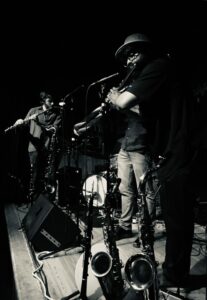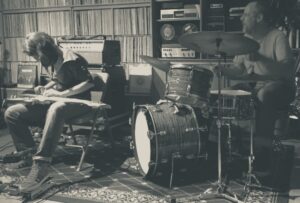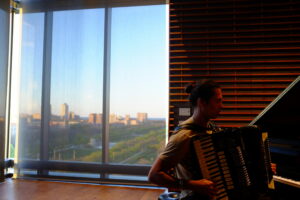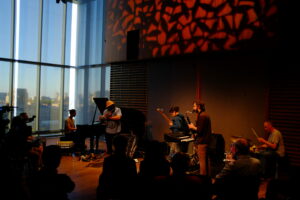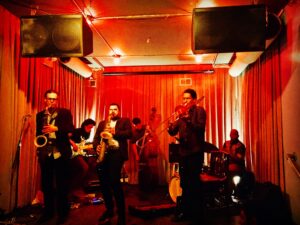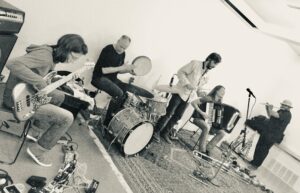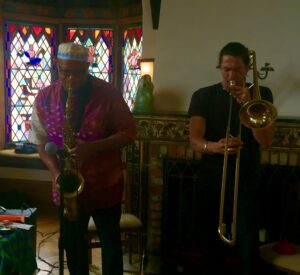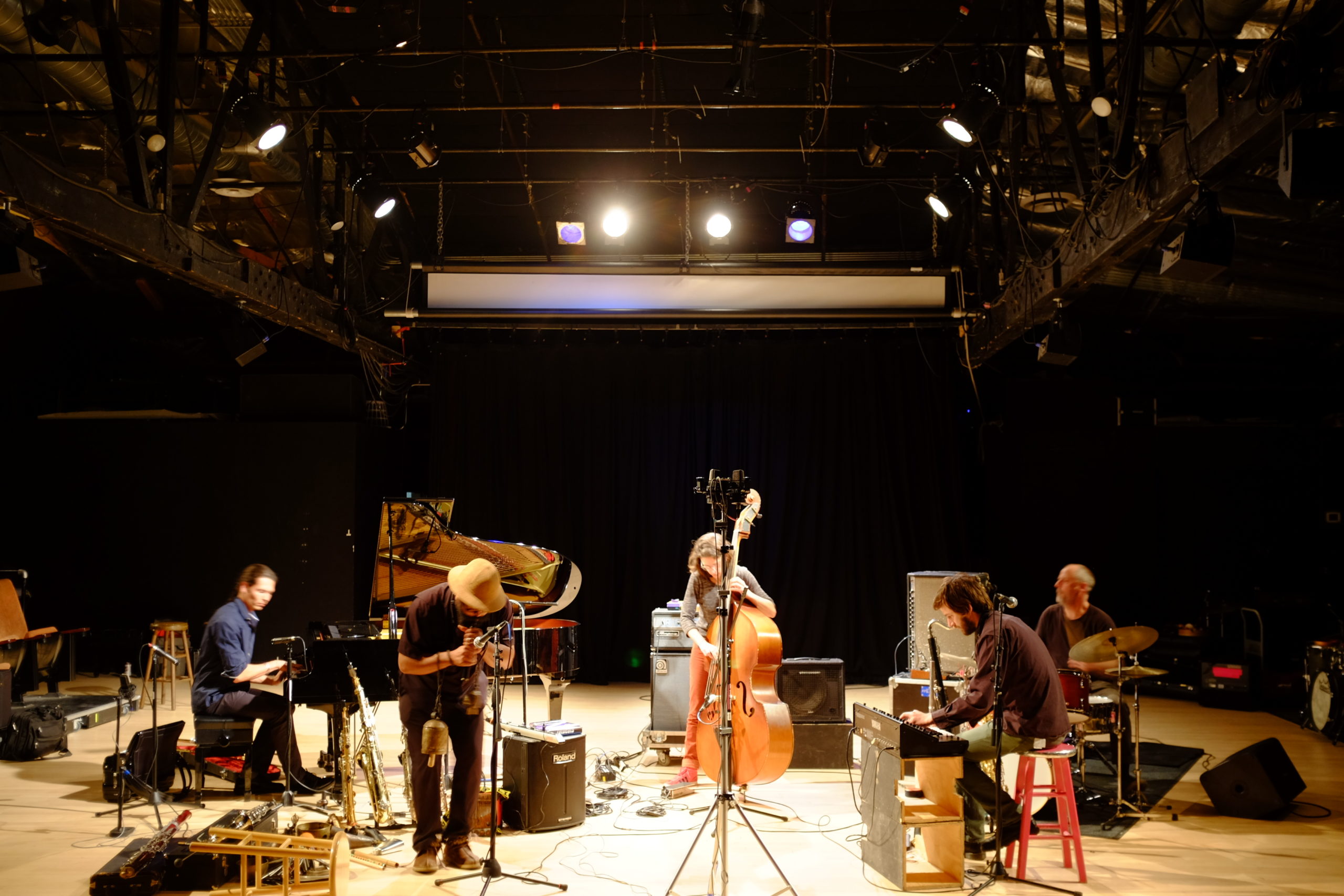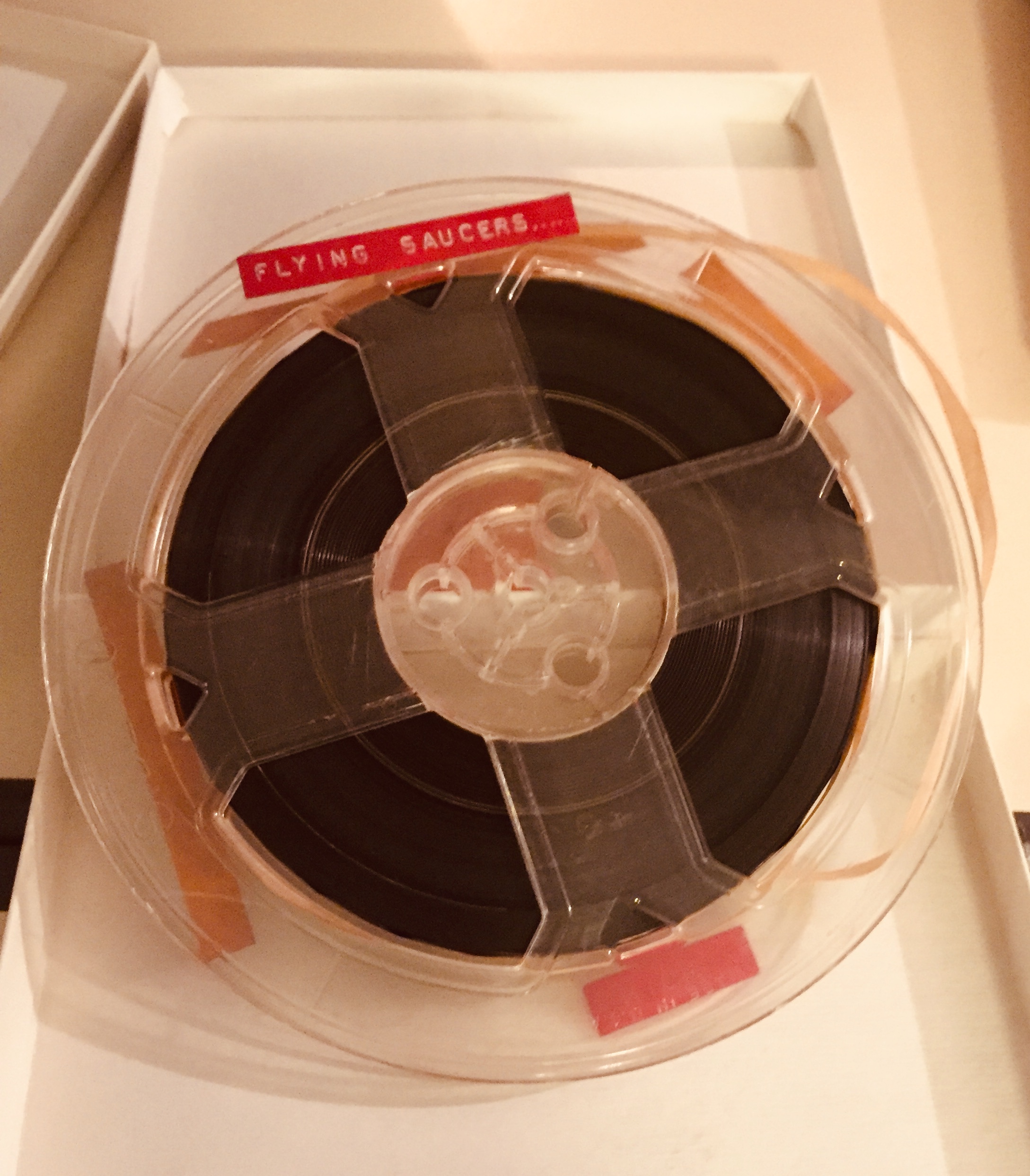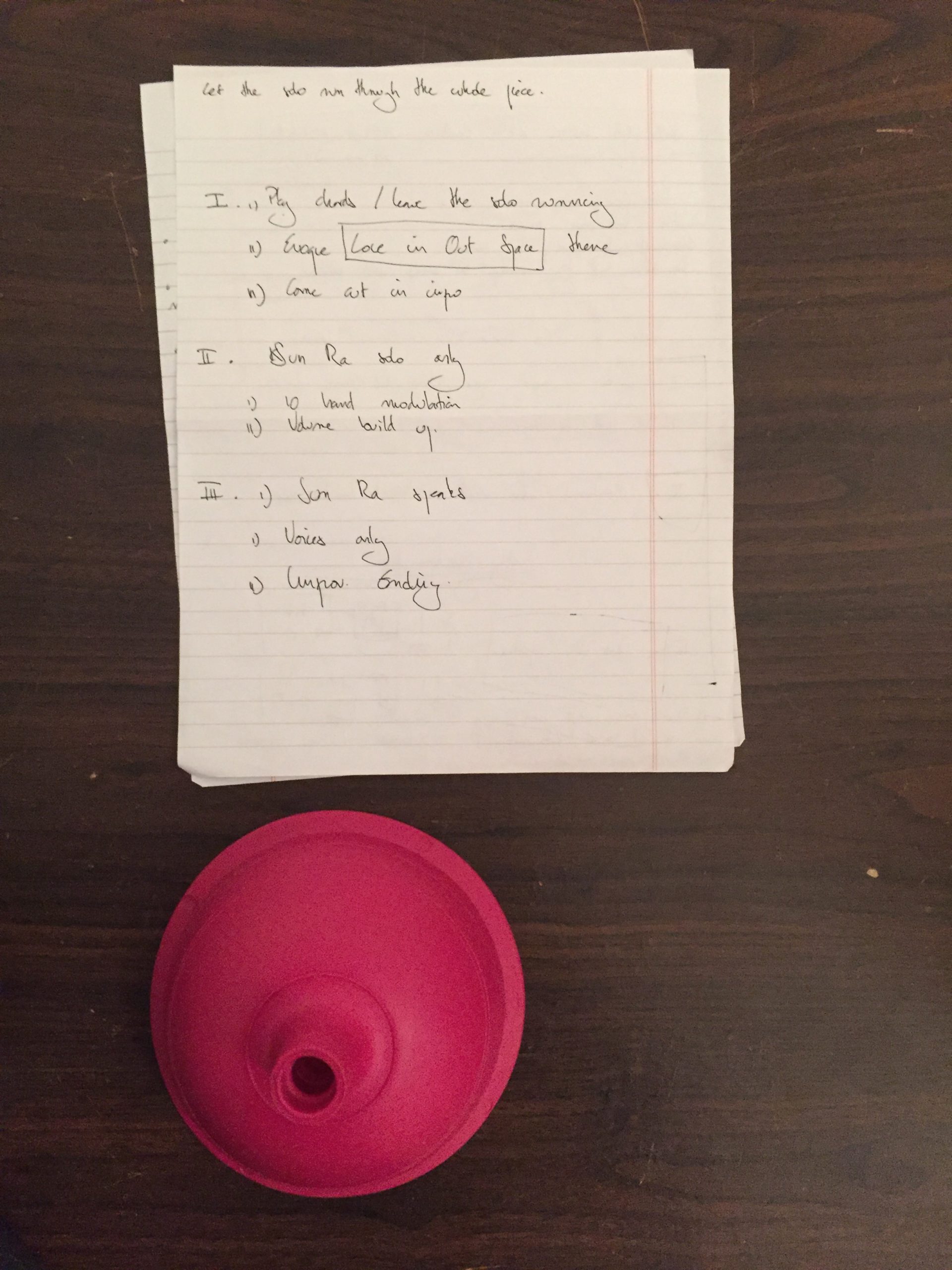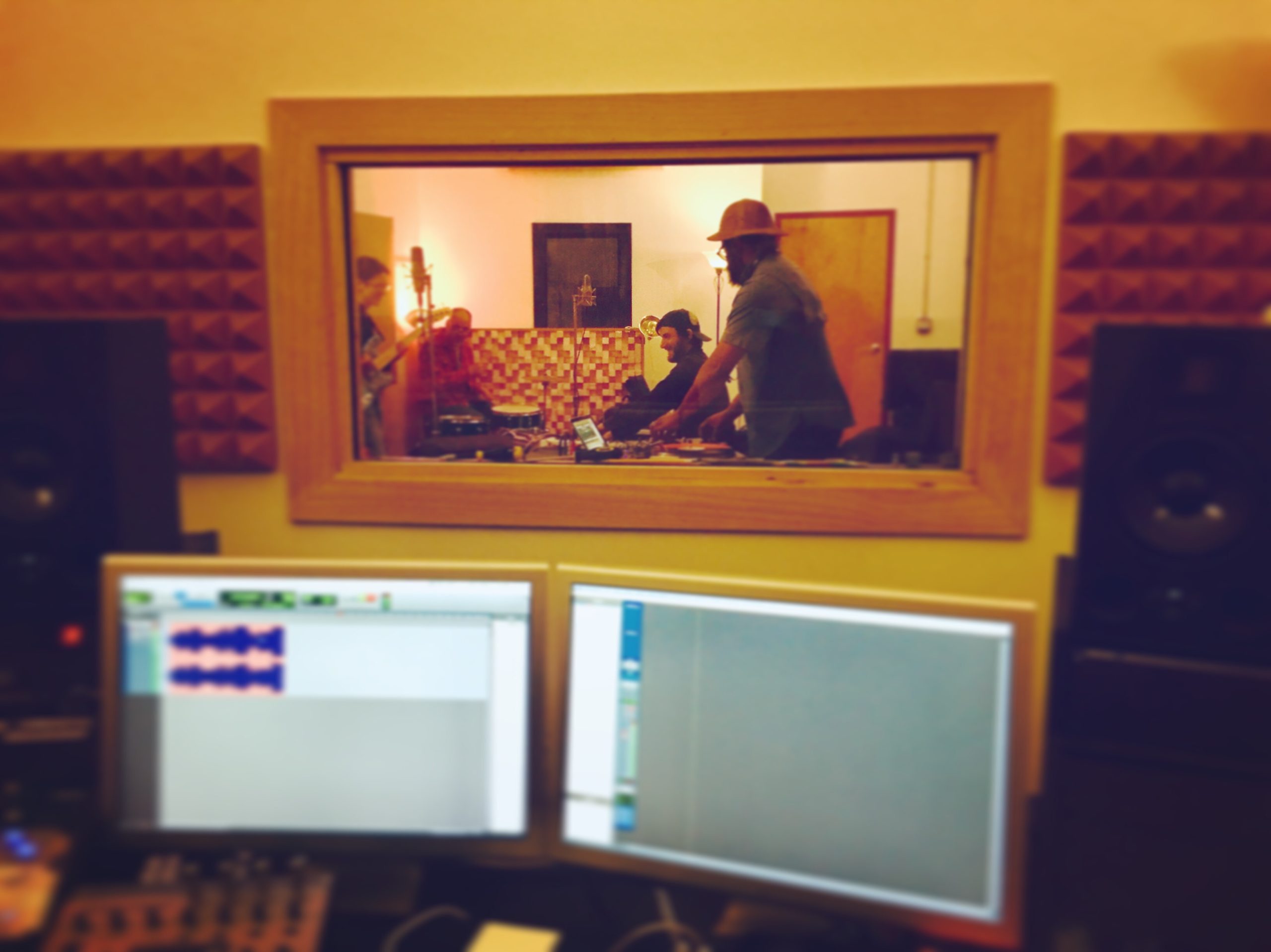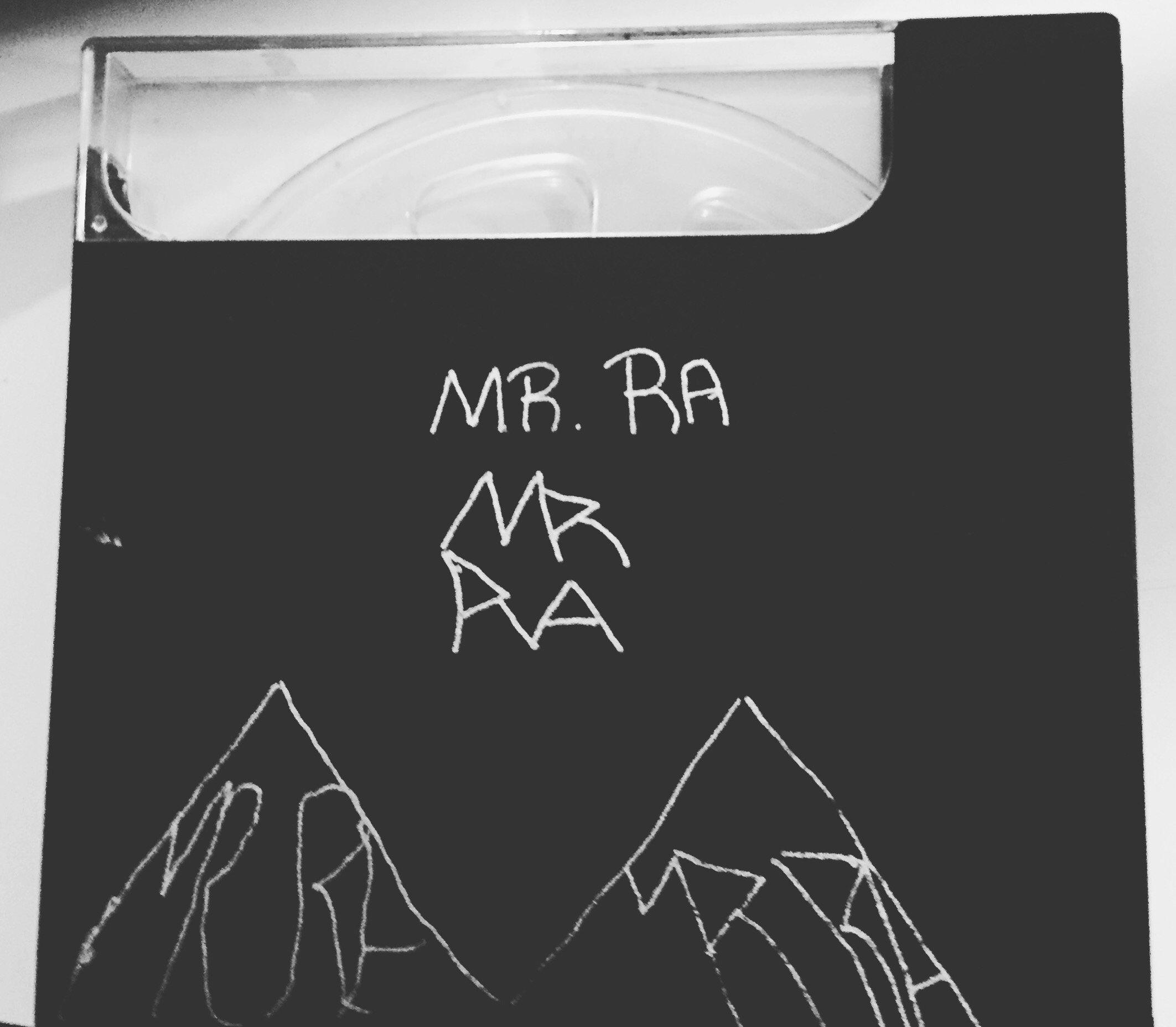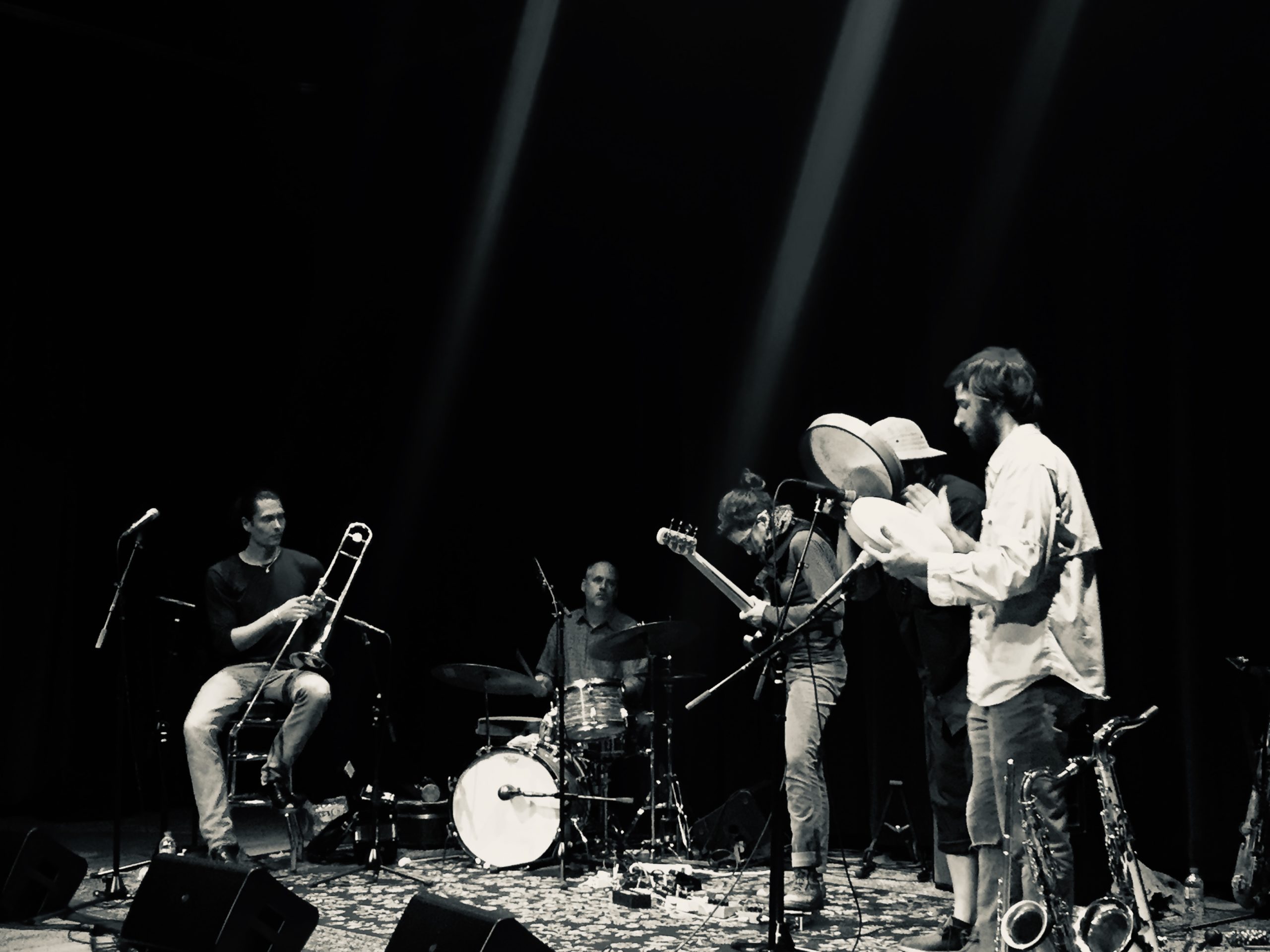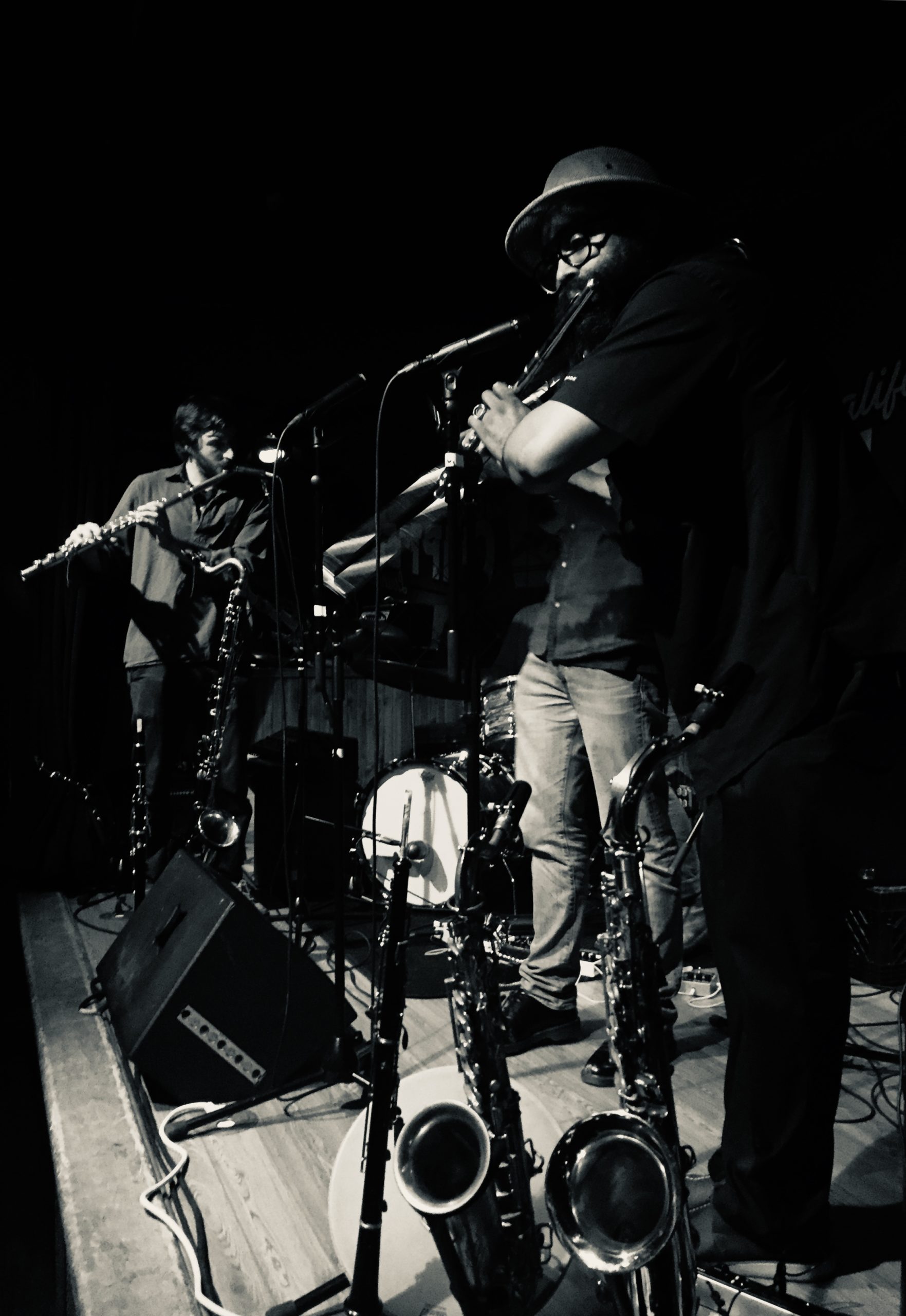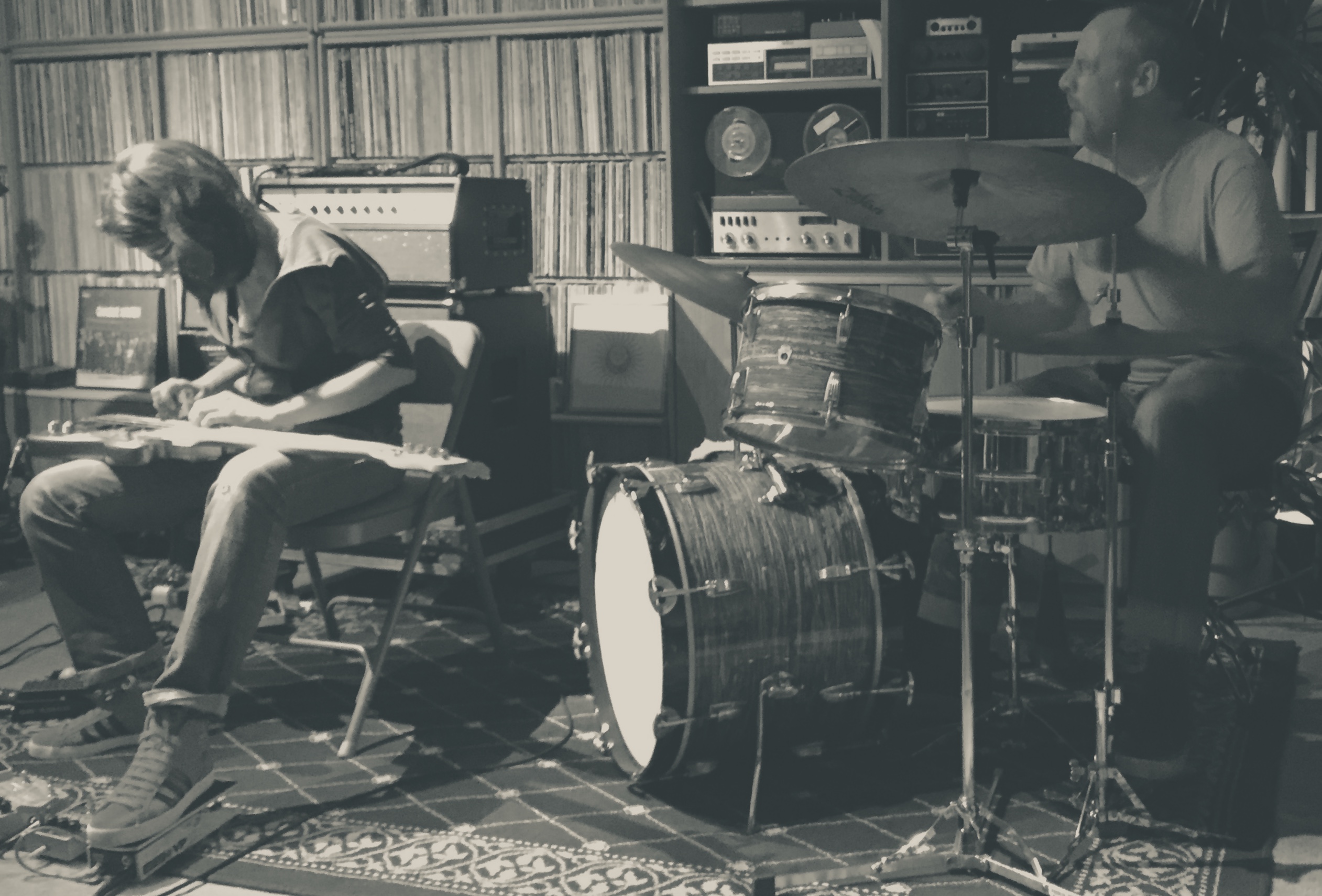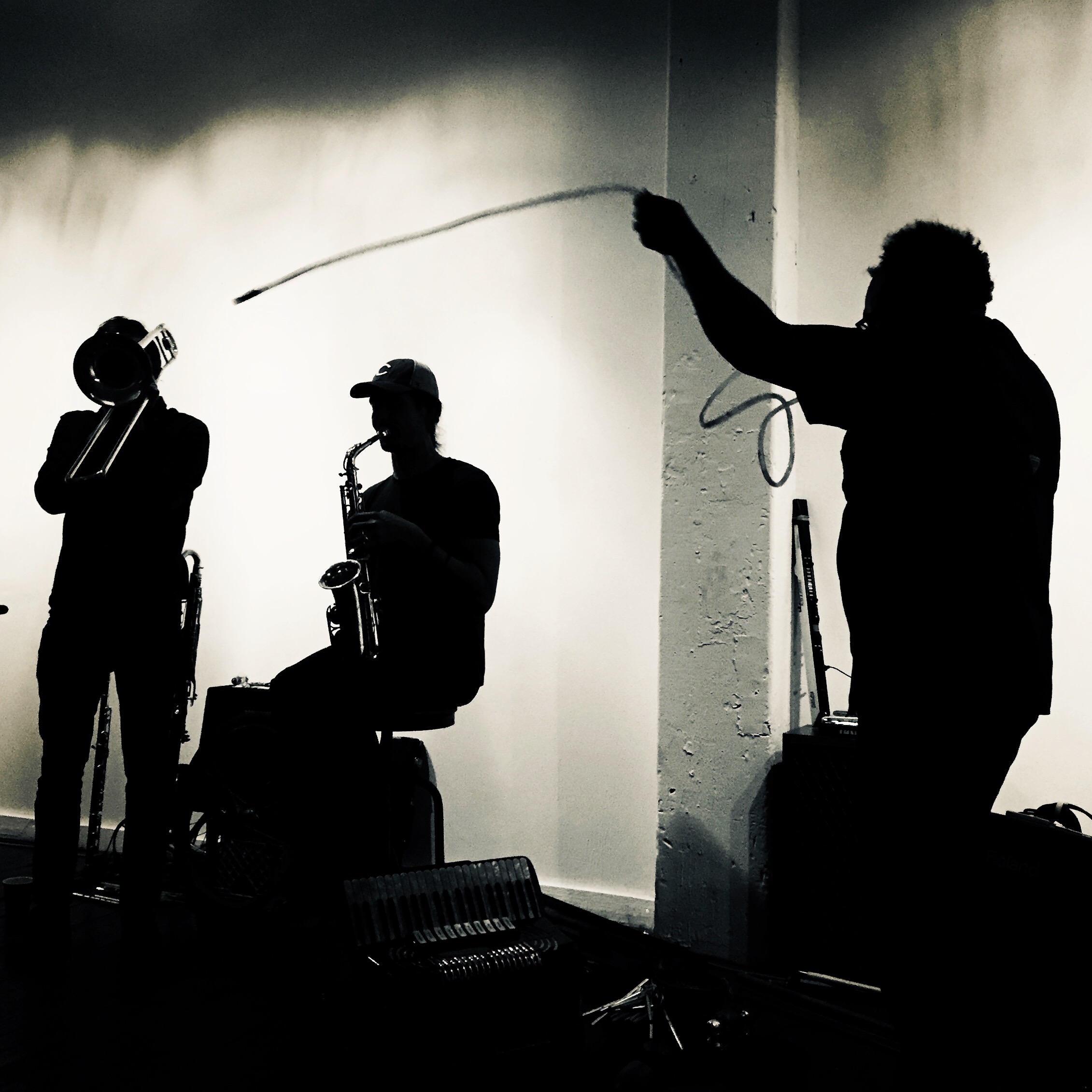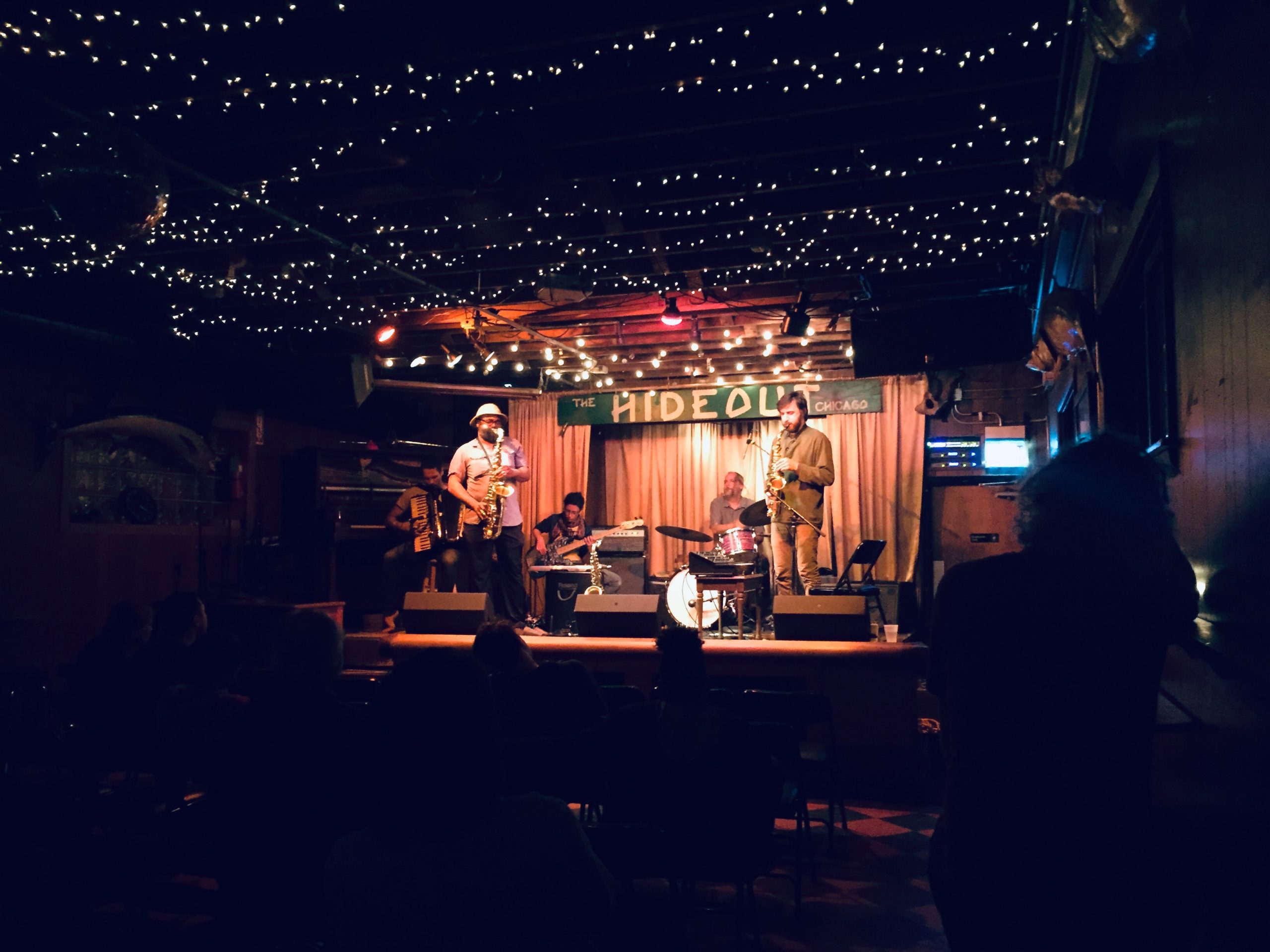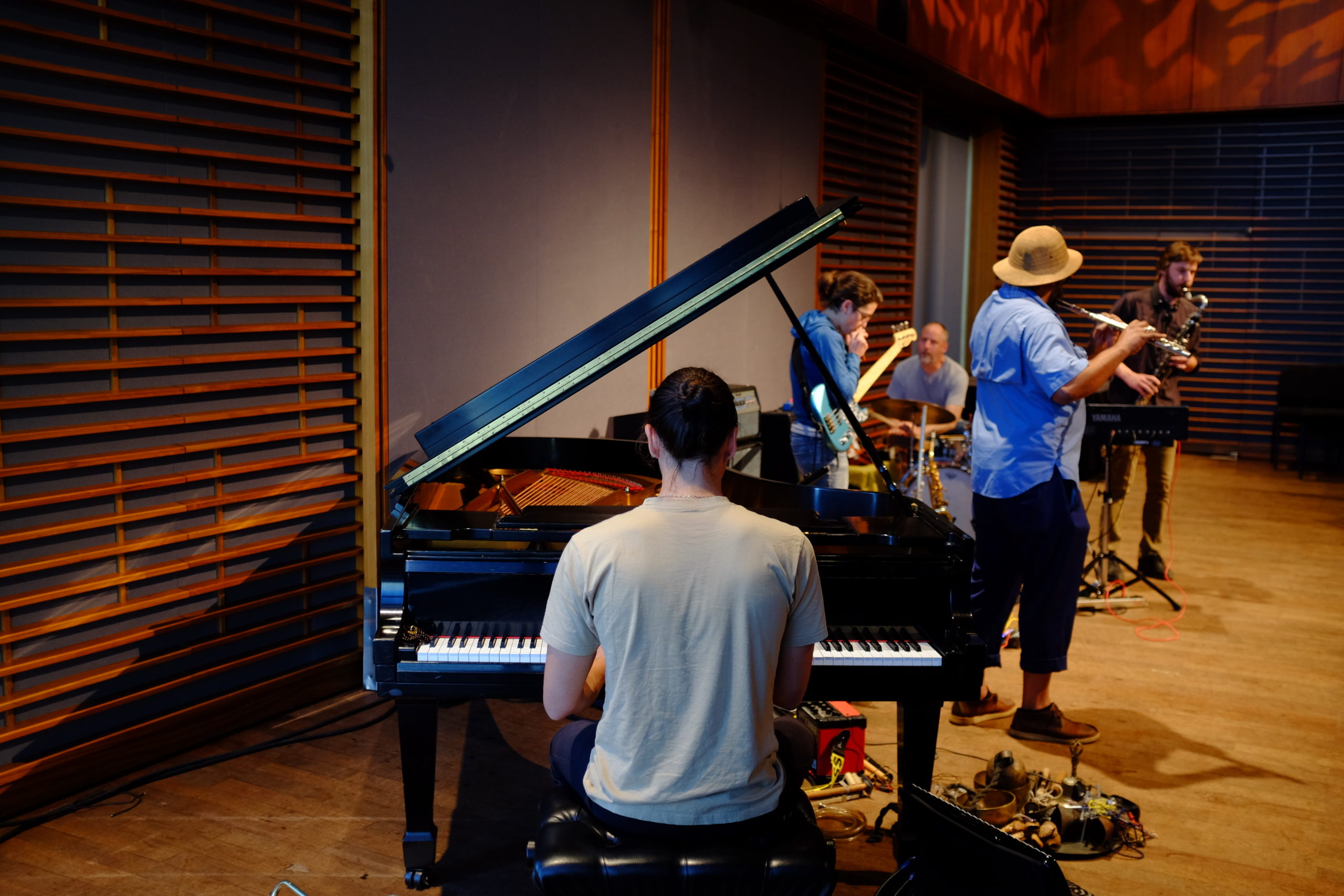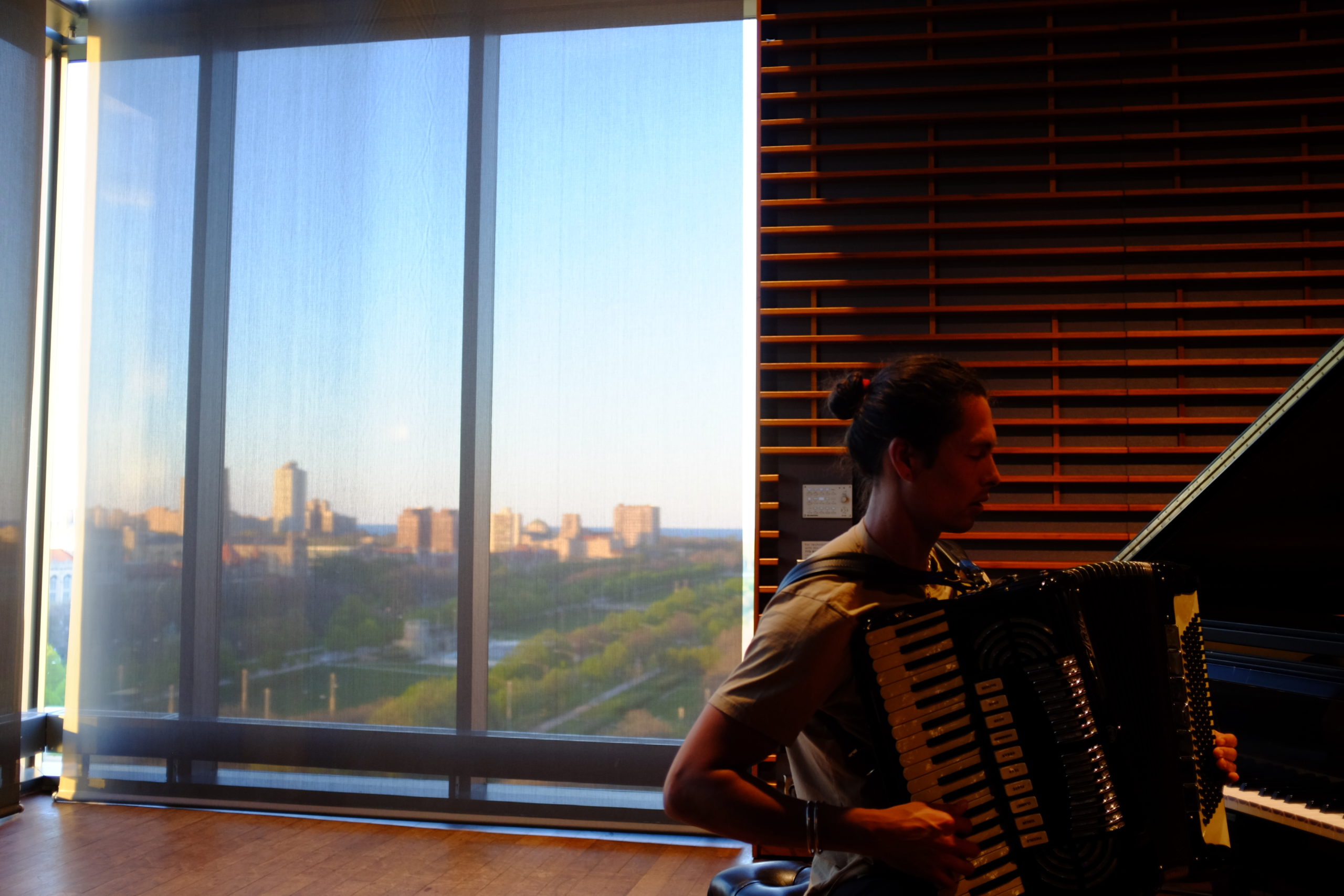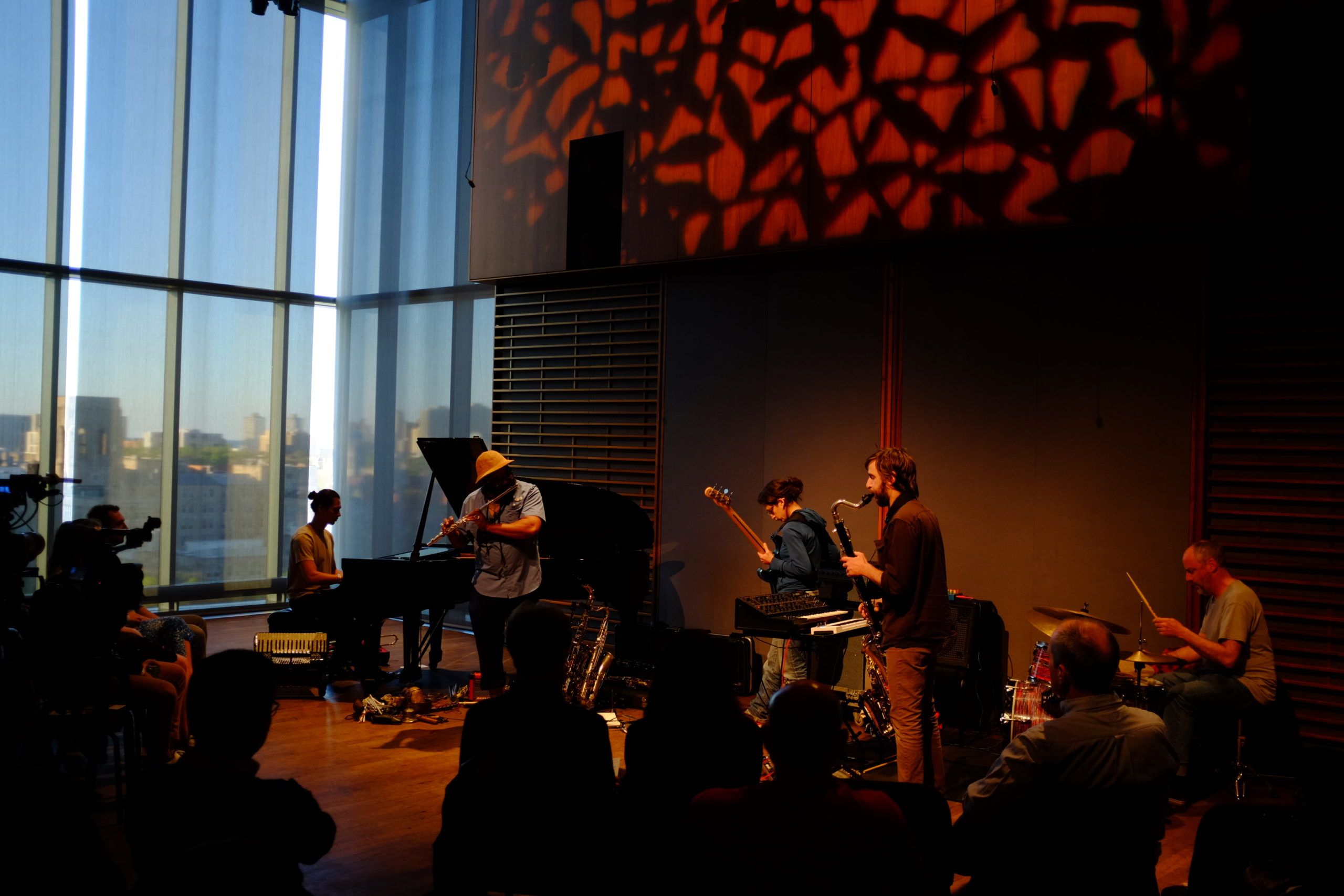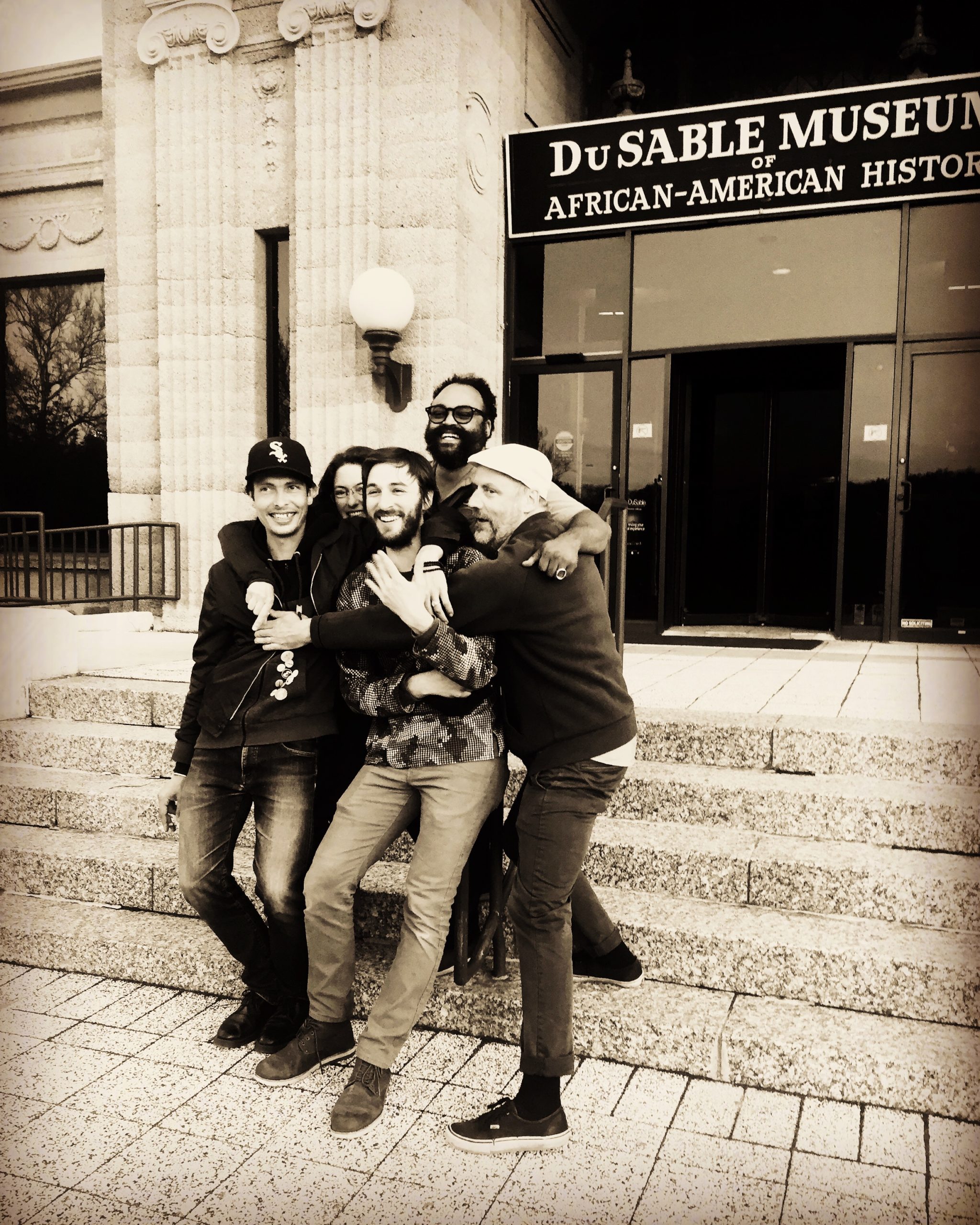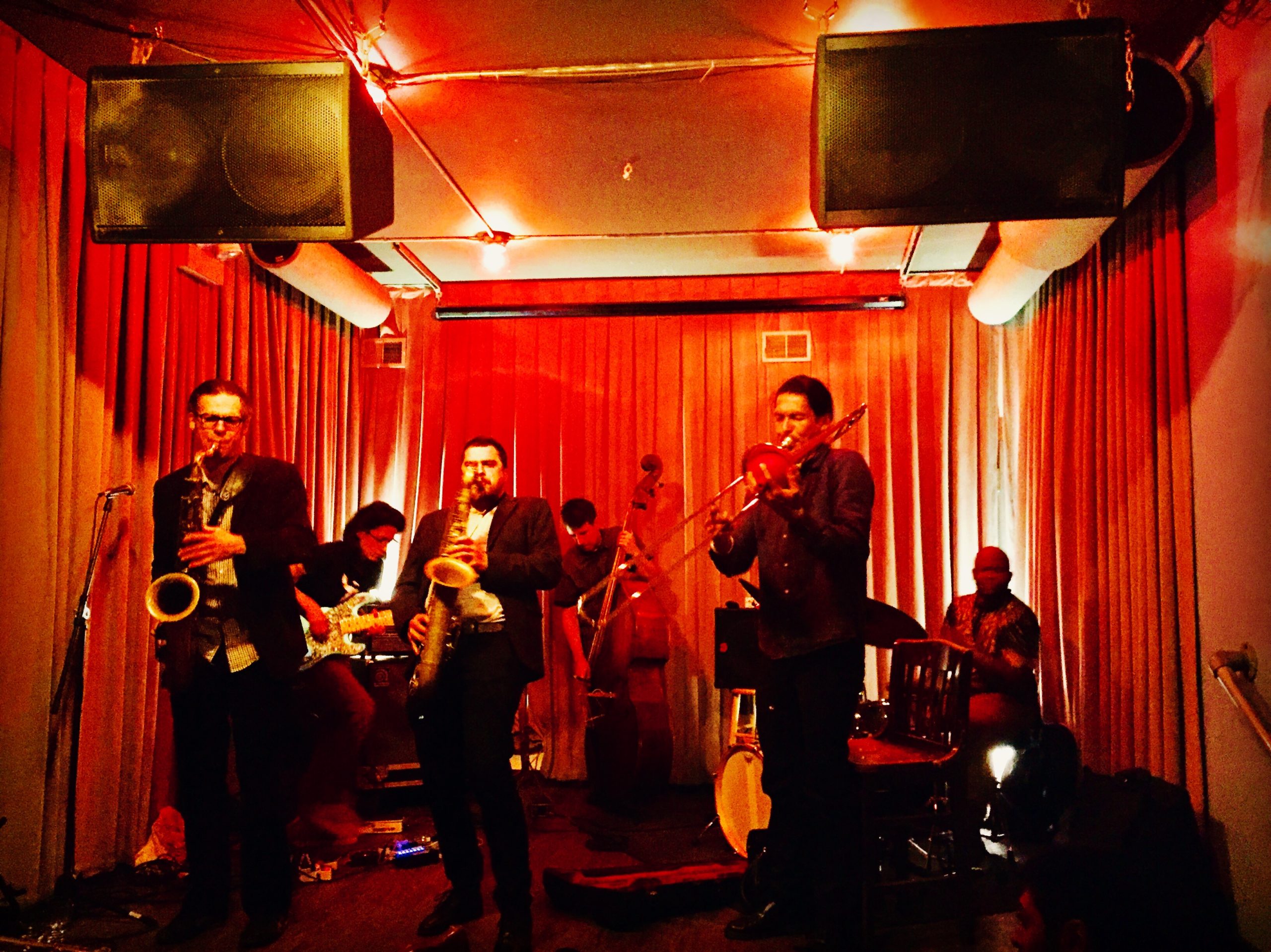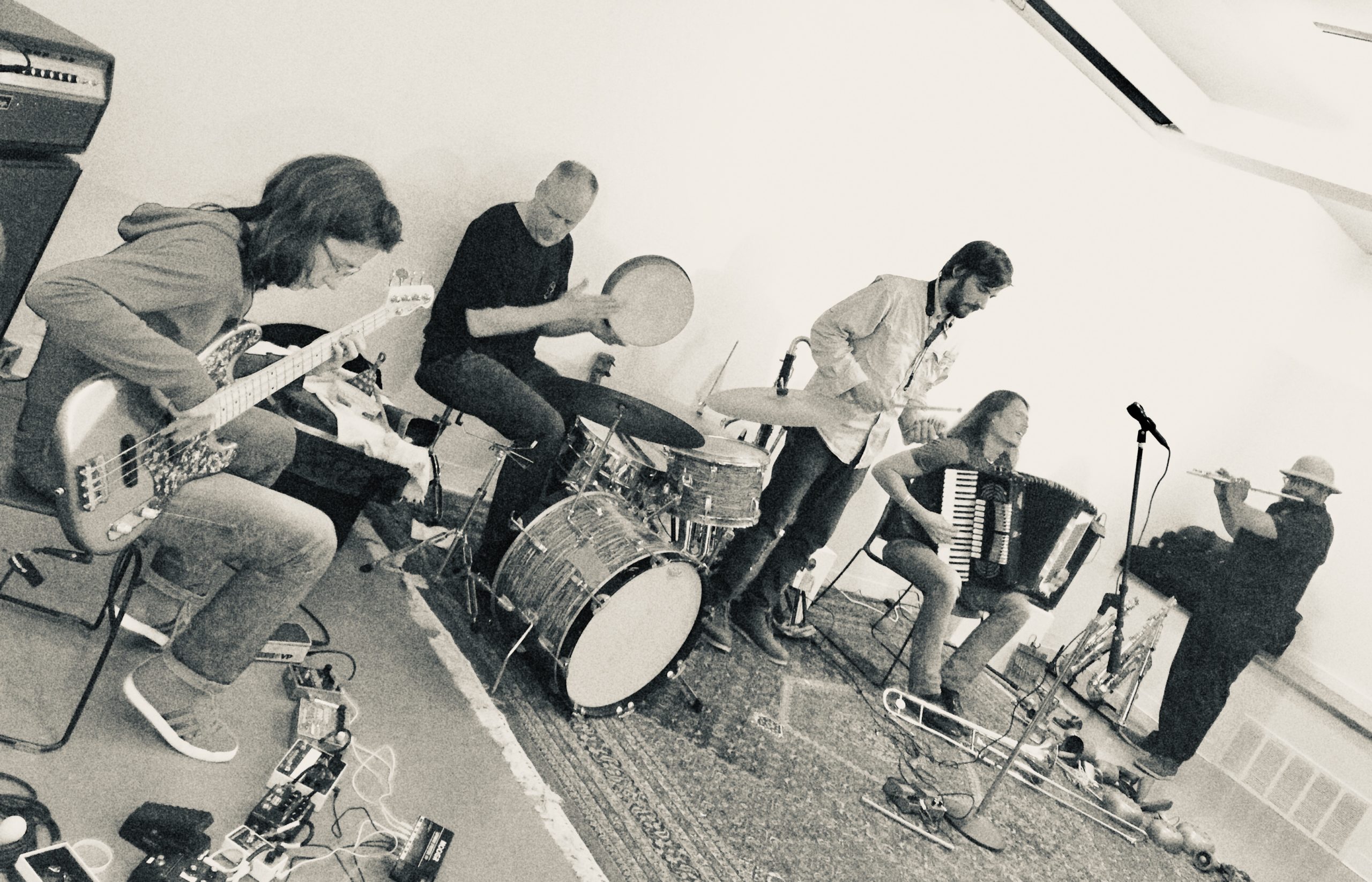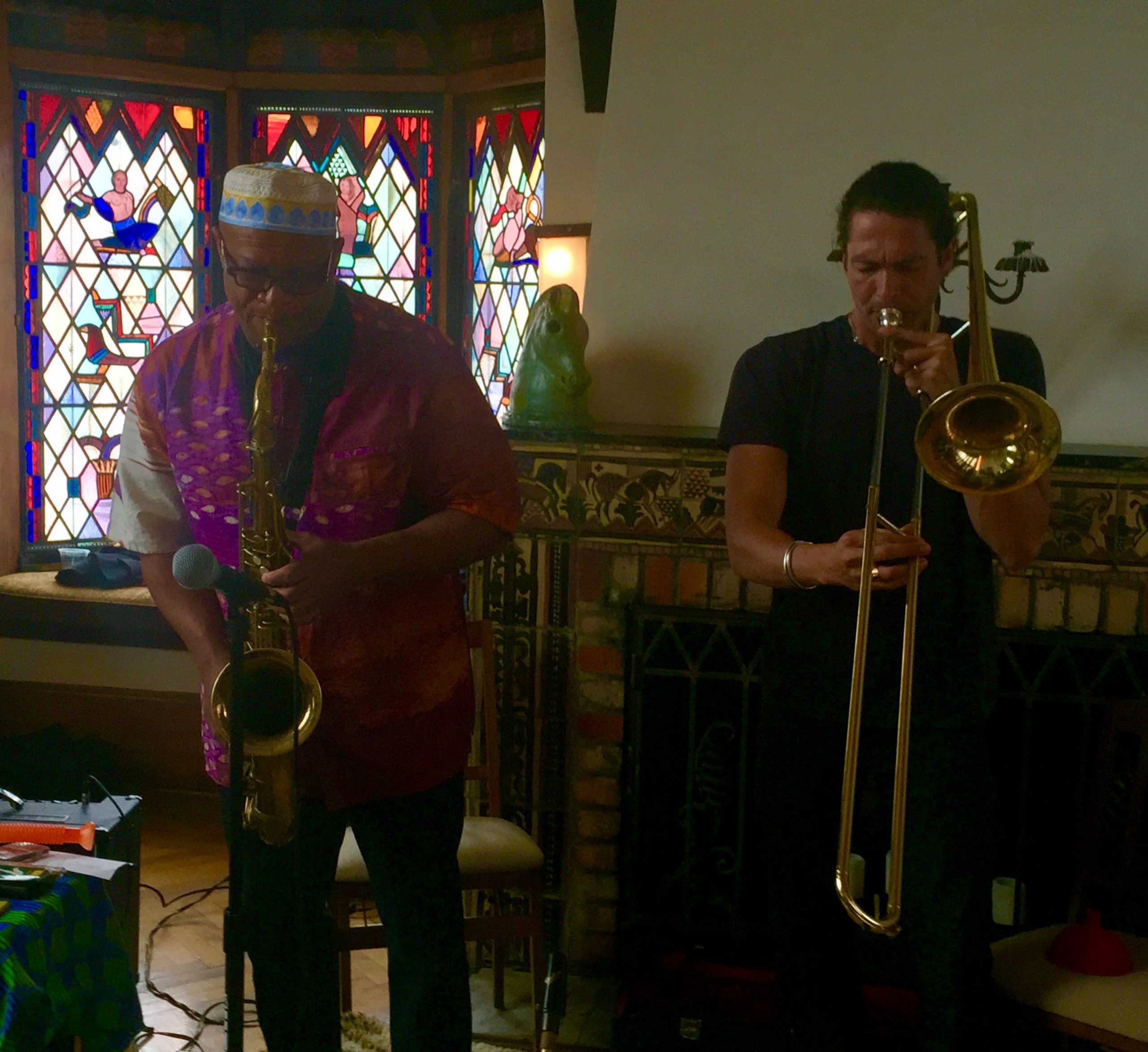

We’ve never seen that before: saxophones, trombone, accordion, bass, percussions and electronics in all directions, all mutations, superimposed, laminated, split, ventilated, vaporized – vapors. We’ve never seen this before, but we know the principle, and these five from all musical directions know it by heart: the freedom to take many forms. Duke Ellington used to say that. Crying Out Loud is a quintet based on improvisation around tiny written compositions acting as pretexts for interaction. Fragments of melody, rhythm or texture form an environment in which all musicians evolve in an interdependent organic manner. According to the sound and intention of the individual, the other musicians adapt in the manner of an ecosystem with premeditated conditions. The keyword of this ensemble is adaptation: adaptation to the context in which the ensemble is playing, adaptation to the unknown as none of the musicians have played with each other before, and adaptation in terms of sound and concept to the particular fragment that is being interpreted. The quintet format is even more interesting as it is asymmetrical and creates an unbalance, whatever happens. Furthermore, the ensemble can act as a regular band, with the bass inside a rhythm section and two horns in the frontline, but everything can be reversed with three horns playing against an electronic section. The reason why fragments are being used as pretexts for improvisation is to bring the attention to the infinite possibilities of structuring improvisation, as well as to the richness of pure sound making for defining form.
Echoes of an upcoming conversation. Simon Sieger: “The name Crying Out Loud is a reflection of the sad times the world is going through and a paraphrase for the anecdote concerning Peter Brötzmann. Upon being asked why he always played so harshly he answered he couldn’t do otherwise when the world was going such a sad direction.” Rob Frye: “I’ve also wondered why Brötzmann plays so harshly, I see how that style reflects his view of the state of affairs in our world. A friend reminded me of Adorno asking ‘how can you write lyrical poetry after Auschwitz?’ In many ways it would be inappropriate! But I think precisely because of the dark direction we are witnessing, it is even more important to show the world how humans can work together. Art can also teach us about community and about why it is worth remembering that something like beauty exists. Believe me, I too feel like screaming into my horn sometimes! And if I hear that power, it can make me raise a fist.” JayVe Montgomery: “Now is the only moment. As improvisers we engage the ‘if’ in the middle of life, exhibiting to other humans our greatest shared instinct-improvisation. Playing freely with listening compassion; talking and listening all at once; we aim to exhibit democracy in a form truer that has yet to be seen in the governments of nations.”
-
Archive Dive : Happy 105th Birthday Sun Ra !
An article by Matt Mehlan, published on May 23, 2019 As a part of the ongoing work of








